Margaret Donald was told she had just a few months to live and might never walk again but, almost a decade later, she’s back on her feet.
The 83-year-old from Aberdeen was diagnosed with terminal oesophageal cancer in 2013, having already recovered from breast cancer a few years earlier.
During her treatment, two vertebrae were broken in her upper spine and there was a strong possibility she’d never walk again.
Then, thanks to an “exceptional” surgeon, she was given a glimmer of hope of once again standing upright and becoming mobile.
‘I was told I might last until Christmas’
In 2013, Margaret went into hospital to hear if the radical chemotherapy she was receiving had been successful.
Instead of the good news she had been hoping for, she was told she “might last until Christmas”.
But, after receiving this blow, she decided to make it her mission to defy the prognosis.
“I realised ‘I think I could [last until then] and beyond,” she said.
“I gained confidence overall – mentally and physically.
“When you’re given a very serious prognosis, there’s always a risk you’ll go in that direction, when in fact this is the one where you can take back control.”
Building strength – physically and mentally
A friend recommended Margaret try a Qigong class hosted by Tina Faulkner Elders at Maggie’s Aberdeen.
Qigong is a mind-body exercise which consists of meditation, breathing and movement with the intention of increasing energy and enabling the body to heal.
Pronounced “che gong,” the practice has roots in Chinese culturing dating back thousands of years.
Margaret explained: “When I first came, I couldn’t stand for the various exercises that involve being on your feet.
“I would always be near to somewhere I could sit down.
“I needed to build that strength over the first year, [which was] the most difficult.”
And soon, Margaret noticed she was going through a transformation that wasn’t solely physical.
“The exercise doesn’t just exercise your body, it exercises your mind and spirit and you can’t really separate them,” she said.
“Through that I gained more strength.
“Then I had a certain pride when I was able to do the standing one without sitting down and that often involves lifting up on your tiptoes.
“I can mostly do that now.”
Why is Qigong good for your health?
Qigong teacher Tina Faulkner Elders is in her 40th year of studying the art, which was passed down from her father who taught classes at Maggie’s Inverness.
She says it has strong links between our physical and mental states.
“Qigong is part of traditional Chinese medicine in the same way acupuncture is,” she explained.
“[But] Qigong does the same thing and more because it’s an active therapy – you’re doing it and paying attention to yourself, rather than someone doing it to you.
“It’s very much a health but also a cultural thing, so you can go more into being mentally balanced as well as physically.
“The Chinese and many other cultures don’t separate the mental and the physical.
“In order to change a stuck mental state, you need to change your physical state,” she said.
Qigong tackled Margaret’s ‘monkey mind’
She added: “The Chinese have this phrase they call the ‘monkey mind’.
“Your mind has this thing where it really wants to disappear off and do its own thing.
“There is discipline of training the mind to come back to yourself and be focused, it’s so easy to let your mind wander off,” Tina explained.
And while it has benefits during the exercises, they are also much longer-lasting.
Tina said: “It’s how we engage with everything, our reactions to things that go wrong, stuff we don’t have control over, but we do have control over our responses.
“That mental discipline helps with the bigger picture of life.”
And this is something Margaret is taking into all aspects of her life.
“I try to sit and meditate and I’m much more able to keep the monkey mind under control through my Qigong exercises than I ever was,” she added.
“Being here has definitely taught me that. How we think about it will influence our own personal outcome.”
Members of the public have the chance to try types of Qigong and Tai Chi at a free fundraiser taking place in Aberdeen next week.
The session will run at the Duthie Park bandstand from 10am – 12pm on Saturday April 30.
Donations can be made to Maggie’s and Aberdeen charity VSA, with representatives on hand to answer questions.
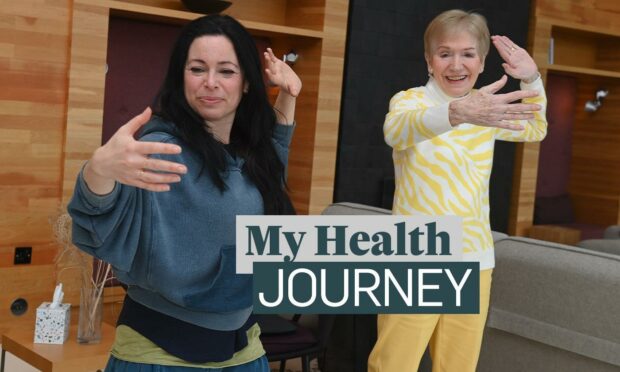
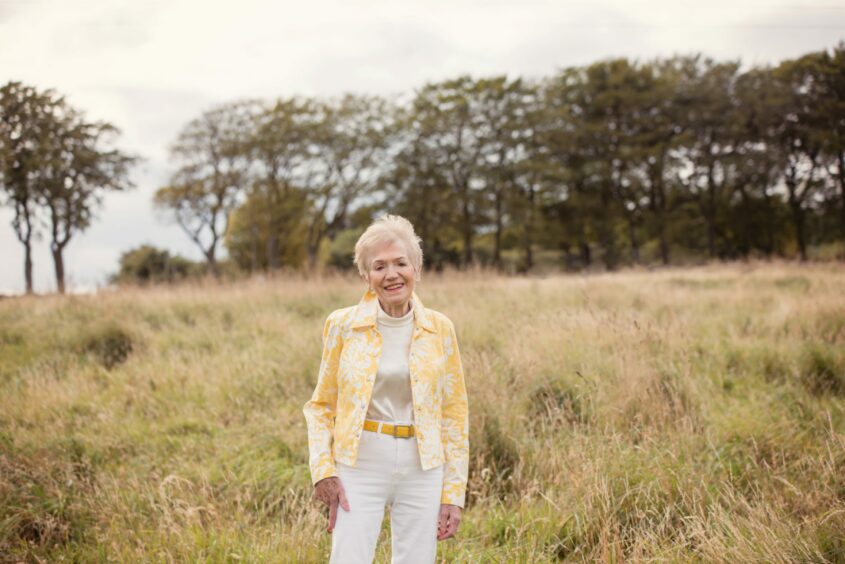
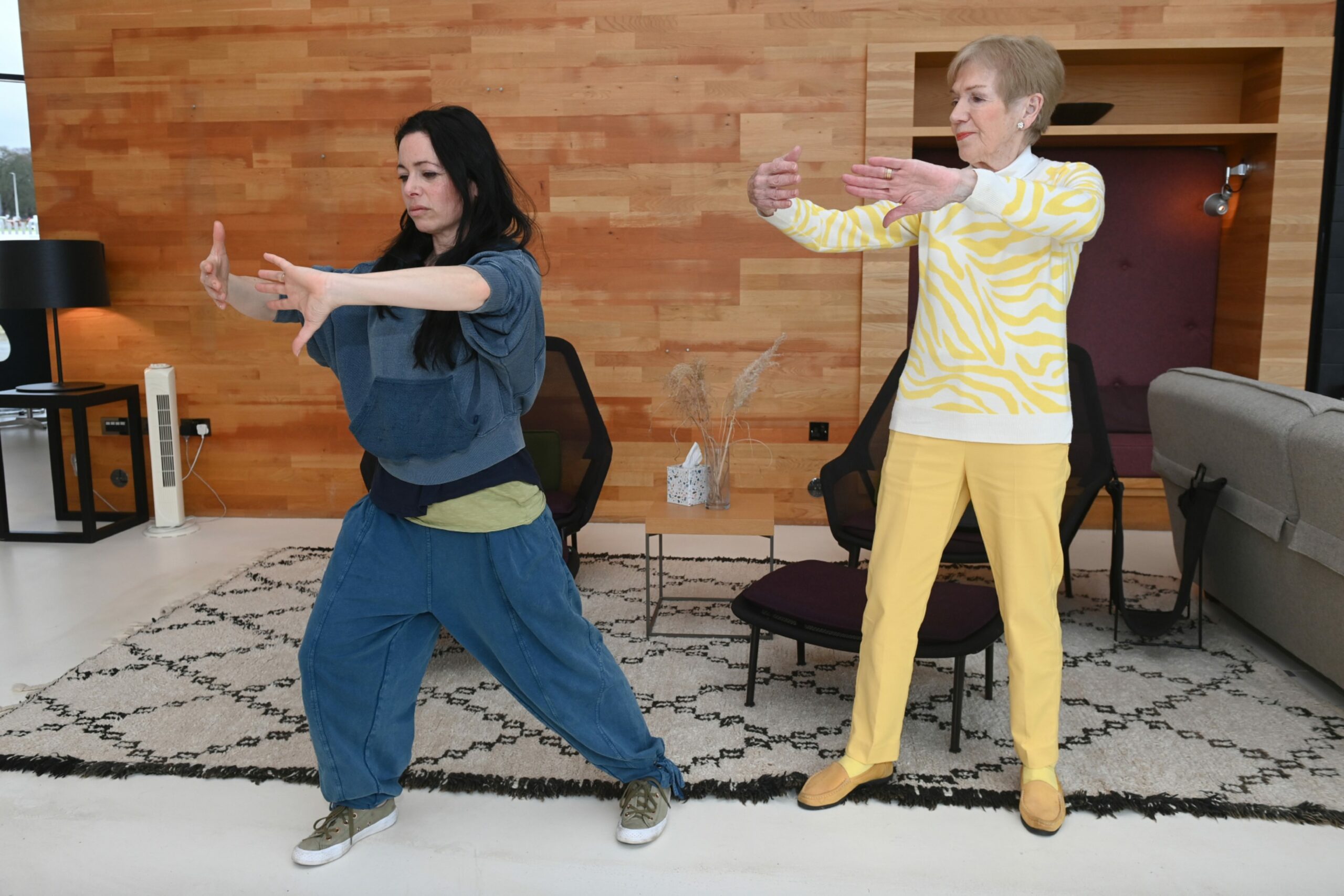
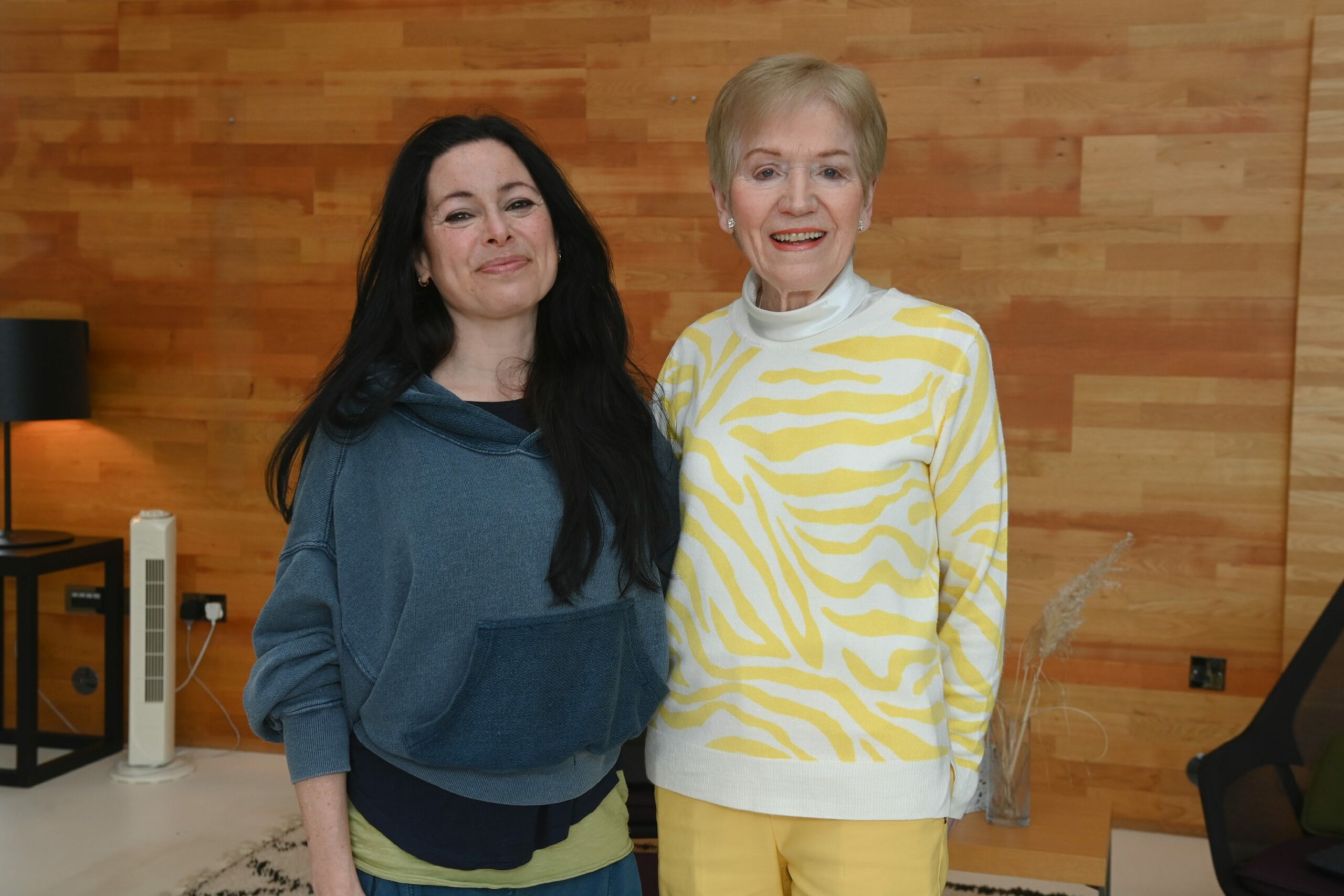
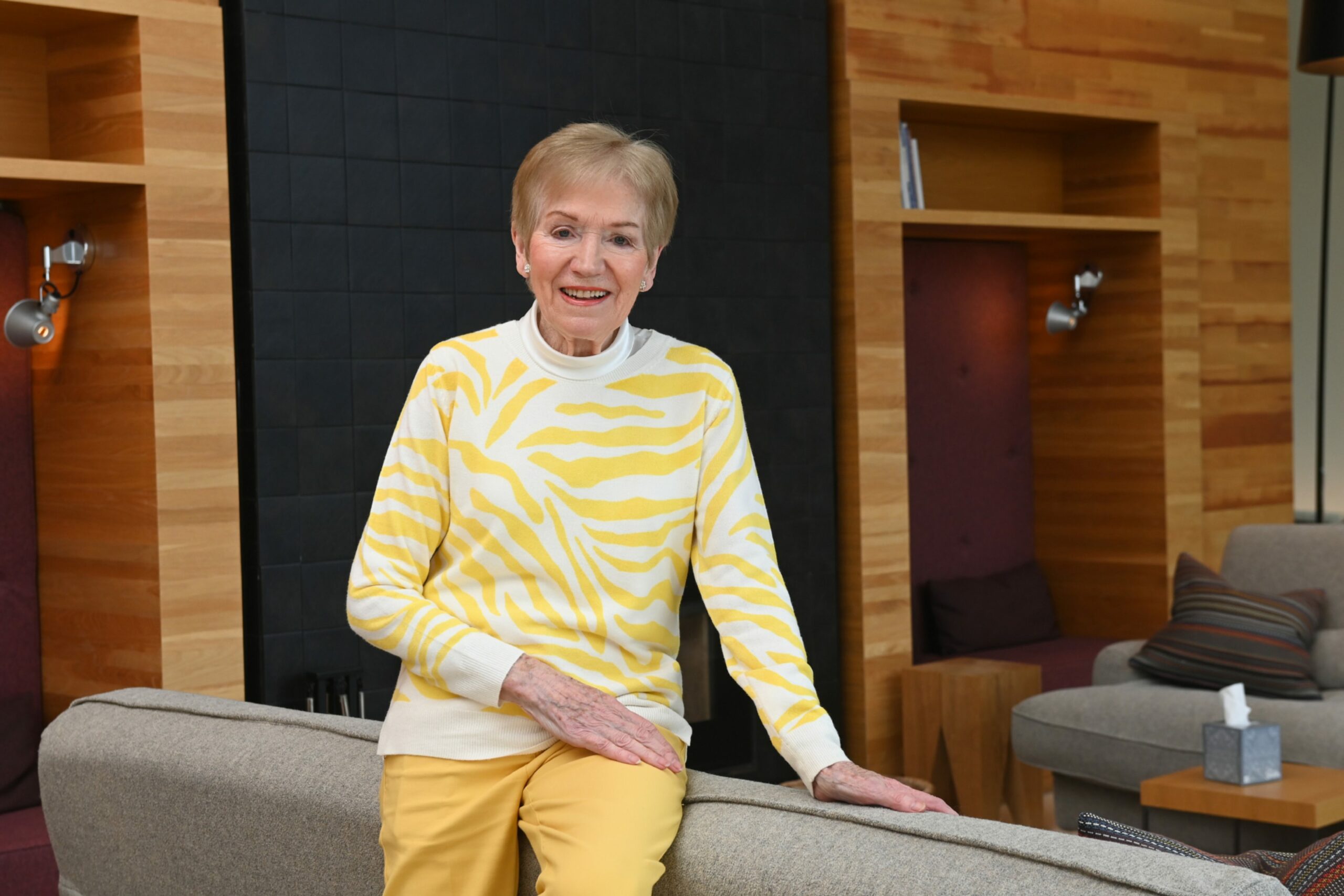
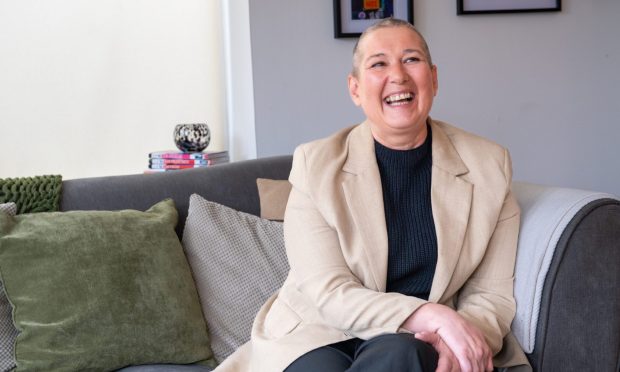
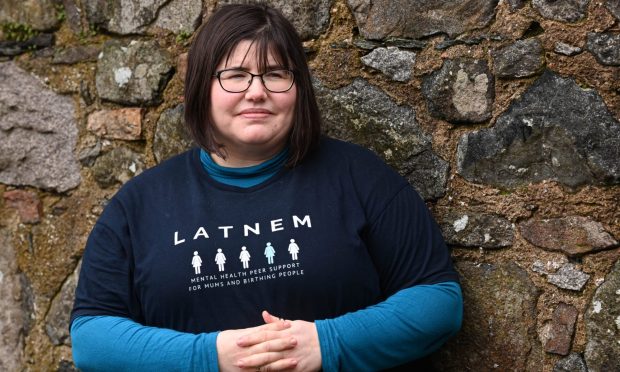
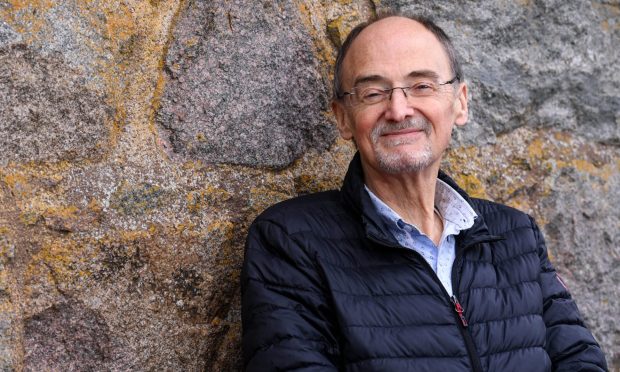
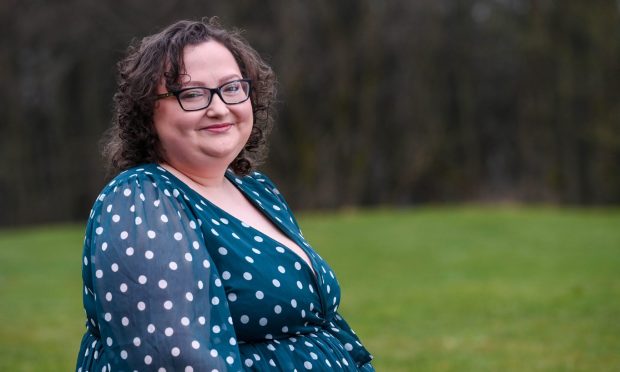
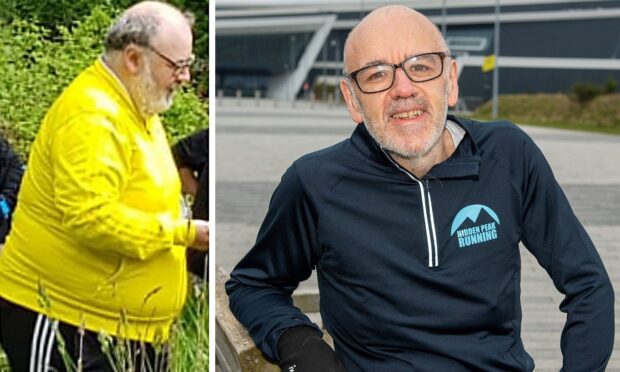
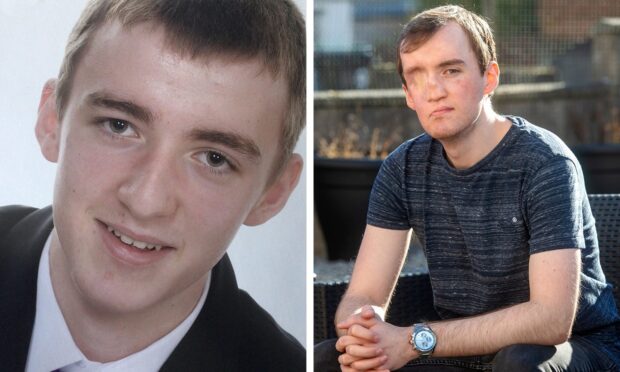

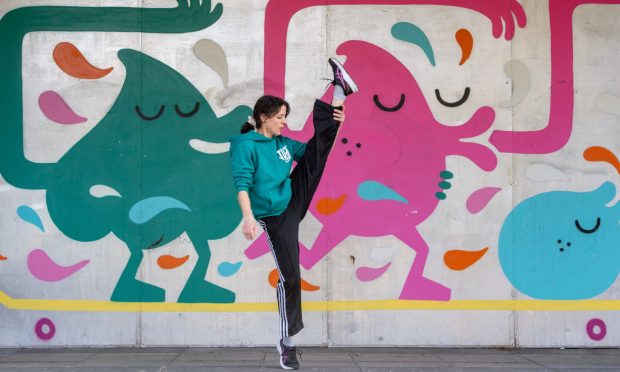


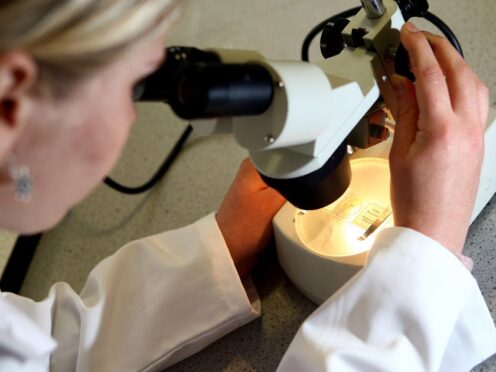



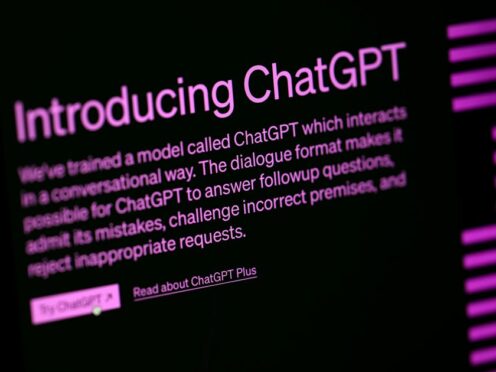
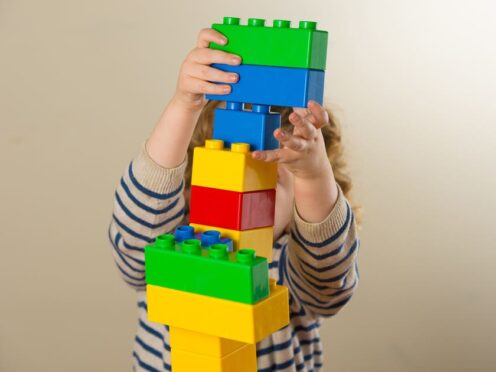
Conversation